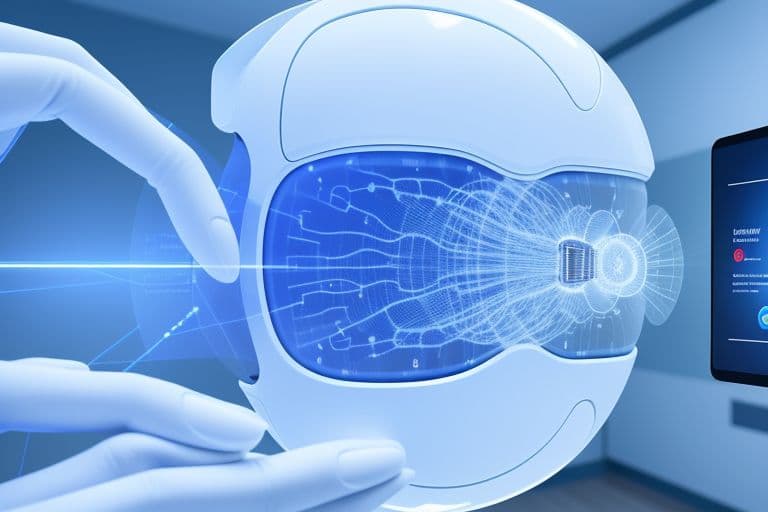Navigating the AI Revolution in Healthcare: Balancing Progress and Preserving the Essential Role of Human Doctors

Abstract
As the field of healthcare rapidly evolves with the advent of artificial intelligence (AI), it is crucial to address the concerns surrounding the role of human doctors. This blog post explores the transformative impact of AI on the medical profession and the potential implications for human doctors. With projections of job disruptions and a projected shortage of doctors, the integration of AI raises questions about the future of healthcare delivery. However, instead of fearing the rise of AI, this article emphasizes the importance of finding a balance between innovation and preserving the essential role of human doctors. It discusses how AI can enhance medical intuition, reduce medical errors, and streamline healthcare costs. By embracing AI as a powerful tool and leveraging its computational capabilities, human doctors can collaborate with AI to achieve improved patient outcomes. This blog post aims to navigate the AI revolution in healthcare, providing insights into the evolving landscape and highlighting the continued significance of human doctors in delivering compassionate and high-quality care.Introduction:
Our belief that we, as humans, are highly intelligent and that our brains have evolved over billions of years is rooted in our own ignorance. However, AI is advancing at an exponential rate, surpassing our capabilities at an unprecedented speed.
Transforming the Landscape of Employment and Medicine:
It is widely acknowledged that a significant number of jobs, with some estimates suggesting up to 80% of today's jobs, will cease to exist in the near future. This transformative wave of automation and AI will inevitably impact various industries, including healthcare. In the medical profession, the rise of AI poses questions about the future role and significance of human doctors. As AI becomes more prevalent, there is a need to adapt and find ways to complement and collaborate with AI to ensure the best possible outcomes for patients. By embracing AI as a powerful tool, we can evolve and redefine our roles as healthcare professionals, ultimately improving patient care in the face of advancing technology.
Addressing the Projected Shortage of Doctors by 2030
It is projected that by 2030, there will be a shortage of at least 10 million human doctors. This projected shortage raises significant concerns about the healthcare system's capacity to meet the growing demands of patients. AI aims to bridge this gap by assisting healthcare professionals and enhancing their abilities to provide care. By embracing AI technologies, we can leverage its computational power and analytical capabilities to alleviate the strain on the healthcare workforce and improve access to quality care.
Addressing Medical Errors and Leveraging AI's Intuition-like Capabilities:
Medical errors currently rank as the third leading cause of death. While AI may not possess human-like intuition, it can analyze vast amounts of data and identify patterns that may elude human perception. AI can assist healthcare professionals by providing evidence-based insights and recommendations, augmenting their decision-making processes. In 2016, the AlphaGo program defeated the world champion in the complex game of Go, which was considered a significant achievement. The game of Go requires intuition, and AI demonstrated its capacity to leverage intuition-like capabilities to excel in such scenarios.
As humans, we often rely on intuition due to the limited computational capacity of our brains. Conversely, AI possesses the ability to enhance its computational capabilities and surpass human performance. Moreover, AI models have evolved significantly, demonstrating higher intelligence even with smaller models. This advancement opens up possibilities for achieving even greater feats.
In the field of medicine, unlike many other fields, medical science is considered an art. Human doctors often rely on their intuition and clinical judgment to make critical decisions. This intuitive aspect of healthcare cannot be overlooked. However, it is important to recognize that AI can contribute positively in this regard. While AI may not possess human-like intuition, it can analyze vast amounts of data and identify patterns that may elude human perception. AI can assist healthcare professionals by providing evidence-based insights and recommendations, augmenting their decision-making processes. By combining the artistic and intuitive skills of human doctors with the analytical power of AI, we can achieve more accurate diagnoses, personalized treatment plans, and improved patient outcomes. Embracing AI in healthcare can enhance the artistry of medicine, allowing us to make better use of our intuition while leveraging the computational capabilities of AI.
AI and Reduction in Medical Expenses:
AI has the potential to significantly reduce healthcare costs. AI-assisted analysis of medical data, including X-rays and other diagnostic tests, can accurately detect abnormalities, potentially eliminating the need for more expensive investigations in certain cases. By reducing the number of unnecessary tests and procedures, healthcare expenses can be curtailed. It is estimated that AI implementation in healthcare could prevent at least $3 trillion in medical expenses, making healthcare more accessible and affordable for patients worldwide. By leveraging AI's capabilities in diagnostics and treatment planning, we can streamline healthcare delivery, optimize resource allocation, and improve the cost-effectiveness of medical treatments.
Conclusion:
Considering these factors, it becomes imperative for us to embrace AI's potential in healthcare. As AI transforms the employment landscape, including the medical profession, we need to adapt and find ways to work synergistically with AI to provide the best possible care for patients. By harnessing AI's computational power and its ability to learn intuition-like patterns, we can augment our decision-making processes and mitigate the risks of medical errors. The collaboration between human doctors and AI is essential to strike a balance between the artistry of medicine and the capabilities of AI.
By recognizing the strengths and limitations of AI, we can leverage its computational capabilities to enhance our decision-making processes while preserving and refining the human elements of medicine. The partnership between human doctors and AI can lead to improved patient outcomes and significant cost reduction. Embracing AI in healthcare enables us to unlock new possibilities, harnessing the best of both human and artificial intelligence to shape the future of medicine and improve the lives of patients worldwide.
This Unlock the Future of Healthcare Management! 🚀🏥🌟
Is managing your hospital, clinic, or lab becoming a daunting task? Experience the ease and efficiency of our cutting-edge Management Software through a personalized demo.
